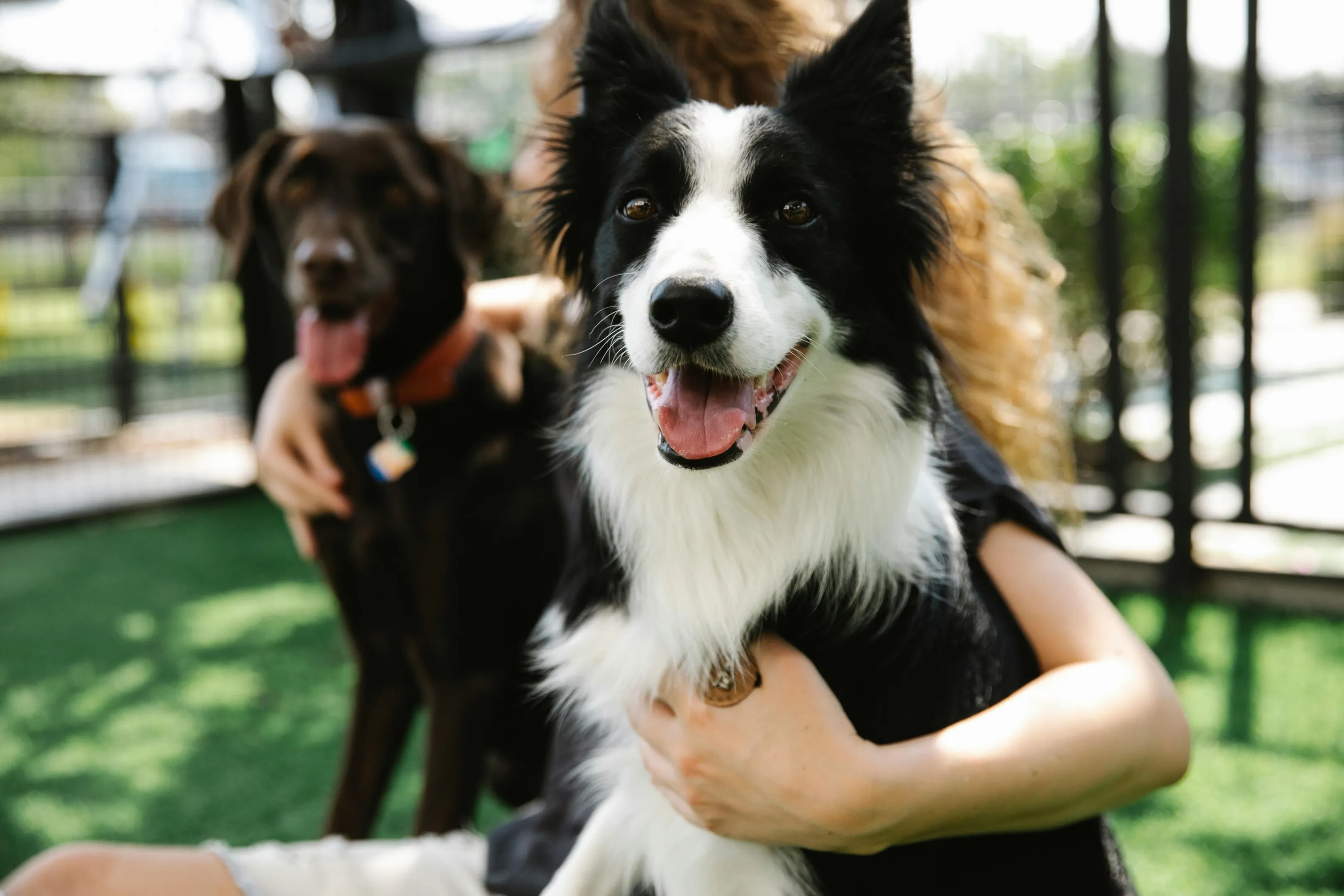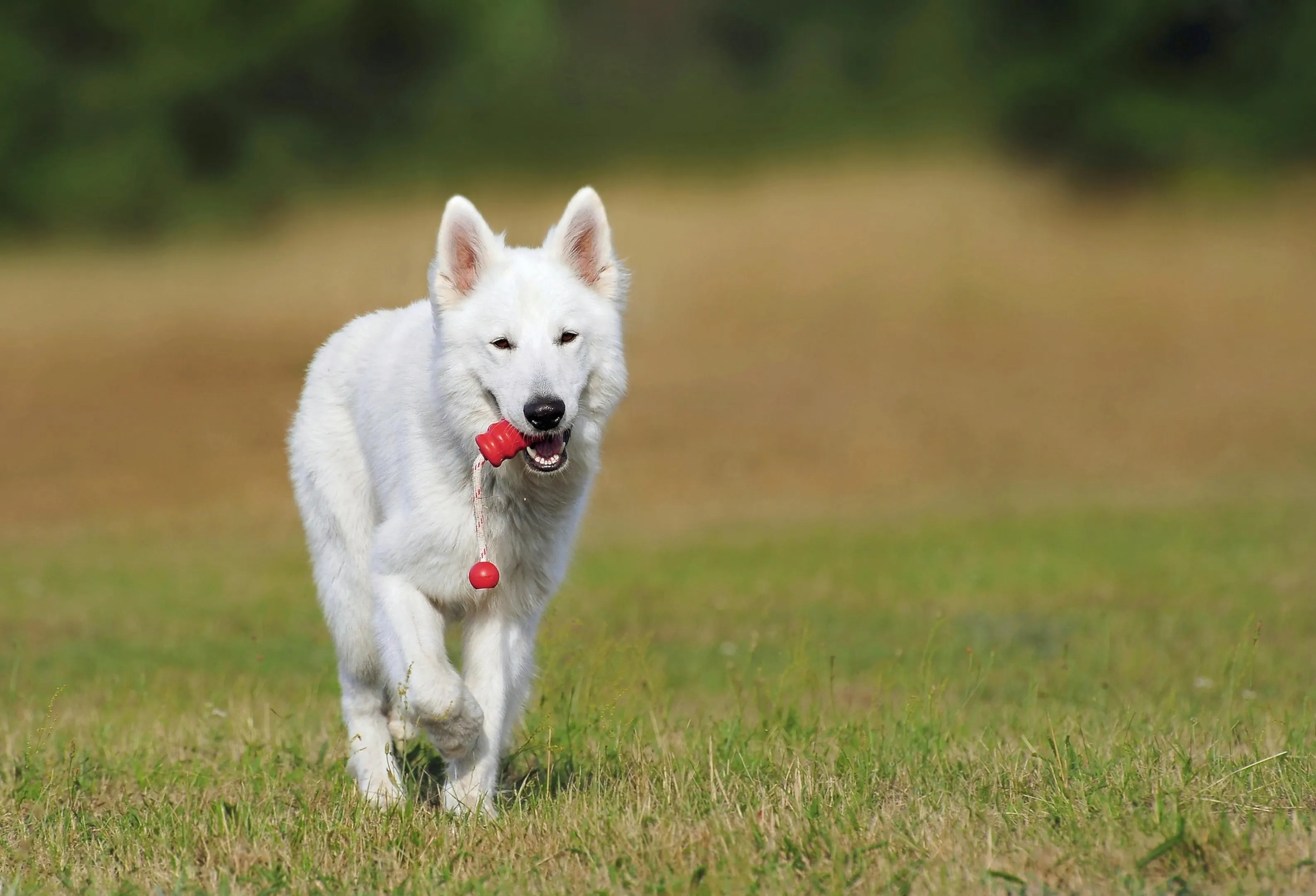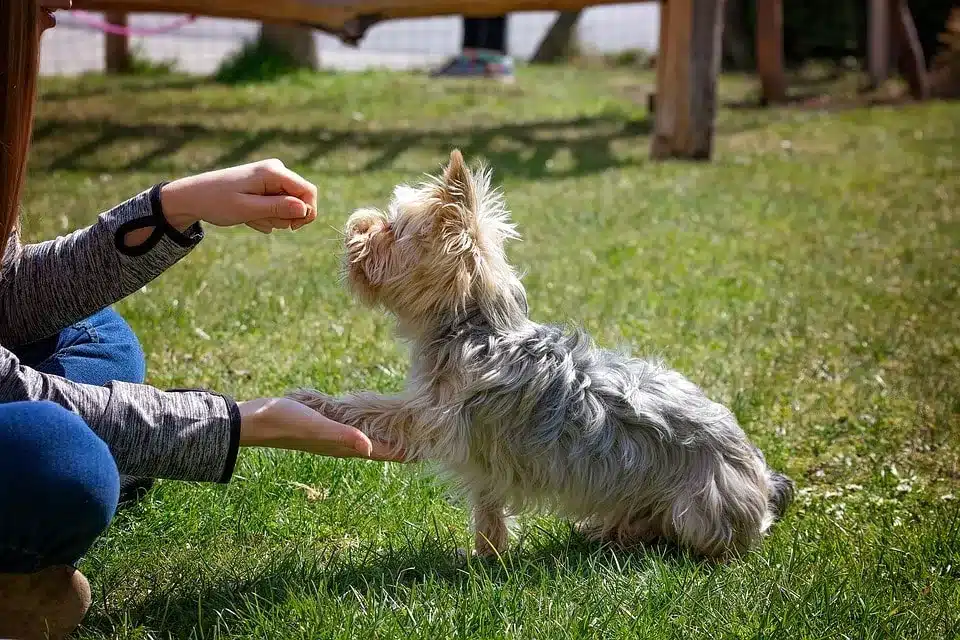Blog Avoid These Red Flags When Choosing a Dog Training Service
Dog trainers don’t need any credentials, and dogs have died because of a trainer’s gross negligence or abuse. Most people are unaware that their dogs have no consumer protection. When they hire an unprofessional dog training service, they gamble with a dog’s physical and emotional well-being.
Red flags to watch for
- ‘Guaranteeing’ results.
- Trainer not having certification.
- Pictures in the gallery show dogs with electric, choke, or prong collars.
- ‘Master’ trainer certification.
- Bootcamp or board-and-train programs.
- Claims that dogs learn differently.
- Pack leader or dominance terminology.
- Overusing the term ‘energy.’
- Unwillingness to disclose all training methods.

Guaranteeing Results
Trainers who guarantee results are irresponsible, unethical, and misrepresent what they do. Trainers are not reprogramming a computer or fixing a pipe. They are trying to change the neurochemistry of a living, breathing being. A skilled dog trainer can’t guarantee results like a therapist or teacher.
Most behavior problems are managed and improved with the use of positive methods. Guaranteed results set dogs and owners up for failure.
Having no Certification
All dog trainers are self-taught to a certain degree. There is no university or central certifying body for dog trainers. Most trainers combine educational experiences from unpaid internships, webinars, books, professional organizations, and regulated schools.
Many responsible dog trainers belong to professional dog trainer organizations, such as The Association for Professional Dog Trainers and Pet Professional Guild, and are certified by the Certification Council for Professional Dog Trainers. Members of these organizations work on continuing education.
The International Association of Canine Professionals allows members to use punitive methods. Avoid trainers certified by this organization.

Pictures in the Gallery
When investigating a trainer, look at pictures in their gallery. If any dog wears a punitive collar, the trainer who claims to use positive reinforcement is dishonest. The trainer will likely use aversive methods if a dog does not comply quickly.
Tools and techniques that use choke, prong, shock collars, slip leads, or jerking, along with any training equipment, to correct behavior cause pets to associate with stimuli and people in the environment negatively.
It also causes apathetic learners, increases stress, anxiety, and fear, and does not teach dogs what they are supposed to do. Leash training programs should be introduced young to prevent conflicts with other dogs or individuals. Some dog behavior can be learned off-leash.
‘Master’ Trainer Certification
Behaviouralist, behaviorist, dog psychologist, head trainer, and master dog trainer are terms anyone can apply to themselves.
It is silly for a trainer to claim to master a new emerging science to explore. Behaviorists work in universities. They conduct studies and provide information for animal behavior consultants and trainers. Being an animal behaviorist means a good trainer has obtained a graduate degree or post-graduate certification.
Do not trust these titles blindly.

Bootcamp or Board-and-Train Programs
There are some positive board-and-train training programs, but they are rare. Investigate to see if the program is force-based. Trainers in board-and-train programs do whatever they please to a dog without the owner present to intercept.
Punishment does not teach dogs what they are supposed to do.
A board-and-train program is not recommended for dogs with severe behavior issues like reactivity, aggression, or fear. To manage and modify these behaviors, it takes building a trusting relationship, consistency, and patience.
Claims Every Dog Learns Differently
At Very Important Paws, we genuinely care about our furry friends.
All dogs learn operantly and classically; those principles are used to train regardless of their breed. Some dogs love sniffing, some love toys, and some love food. They all have something they love, and trainers use what they love as positive reinforcement.
Pack Leader or Dominance Terminology
Any trainer claiming you need to be the alpha or dominant lacks insight into current dog behavior research. Contrary to previous thoughts, dogs do not exhibit pack animal behavior that tries to dominate or manipulate people.
The theory encourages dog owners to be aggressive toward pets and perform actions such as pinning dogs on their side to show the owner is the ‘alpha.’ These aversive techniques do not have the intended effect and teach dogs that owners are unpredictable and cannot be trusted. The dogs fear their owners, which causes a snowball effect on how well-behaved a dog is.

Overusing the Term ‘Energy’
Dogs read our energy. Changing your energy to ‘assertive, calm’ will not change the dog’s behavior. Dog training methods involve much more than your energy.
Dwelling on the importance of the effect of your energy on a dog’s behavior is an oversimplification.
Unwillingness to Disclose Training Methods
Owners are dog guardians. Trainers should be willing to disclose what they will do to your dog. Ask what tools they recommend, what they do when a dog complies, and what they do if a dog does not comply.
If a trainer hesitates to answer questions, ask why. A refusal to disclose methods is a red flag.
Do not leave a dog with someone you do not trust. If a dog seems afraid or worried, seek another reputable trainer. If you are curious about a trainer’s methods and philosophy, they should let you watch training sessions and answer your questions.
The training session should involve a structured approach tailored to the dog’s needs, using positive reinforcement techniques and clear instructions. The trainer should be able to provide scientific evidence and explain their methods. Explaining behavior and body language is essential in behavior modifications and training techniques.

Finding the Right Dog Trainer
When you bring home a puppy, and it is time to sign up for training, where do you begin? What should you look for in a trainer? Dog training techniques are an essential part of a dog’s life.
Finding a top-notch dog training service is easy with a quick Google search. You will find countless options. Finding the ideal match for a furry friend can be a challenge. Very Important Paws is an exceptional dog training service.
The unparalleled training methods align with a pup’s or dog’s temperament and unique needs. The trainers transform the pup into an obedient and well-trained dog.
Conclusion
Choosing a good trainer should be an informed decision that impacts your dog’s well-being and behavior.
Be aware of the red flags mentioned here. Avoid trainers who use outdated, harsh methods or aversive tools, and choose a professional dog trainer offered by Very Important Paws, who will help your dog thrive.

FAQs
1. What are the red flags to watch for?
Red flags include:
- Trainers using punishment-based techniques
- Trainers who are not qualified or do not have certification
- Trainers who are not experienced trainers who work with specific behavioral issues or dog breeds
Research and ask questions before choosing a dog trainer to ensure the use of positive reinforcement techniques and trainers who have the experience and knowledge to work effectively with a furry friend. A good dog trainer prioritizes the dog’s happiness and well-being.
2. What questions should I ask when hiring a dog trainer?
It is essential to ask questions about the dog’s breed, humane training methods, length of time in business, certifications, and qualifications, as well as experience working with specific behavioral issues or breeds. Ask for references and review past successes to help determine the right trainer for a furry friend.
3. What characteristics should I look for?
There are three P’s: positive reinforcement techniques, persistence, and patience. Positive reinforcement uses reward-based techniques to encourage and motivate a pup to grow and learn. Persistence is needed for continuing education over time. Patience allows a furry friend to learn at their own pace.
4. When is the need for dog training indicated?
Aggression, leash pulling, separation anxiety, and excessive barking are some issues and unwanted behaviors that require a professional dog trainer. Identify and address these indications with the aid of a qualified trainer to strengthen the bond between you and your pet and improve a dog’s behavior.
Contact Very Important Paws today in Palm Beach for all your dog boarding, hotel, daycare, grooming, and training needs.

